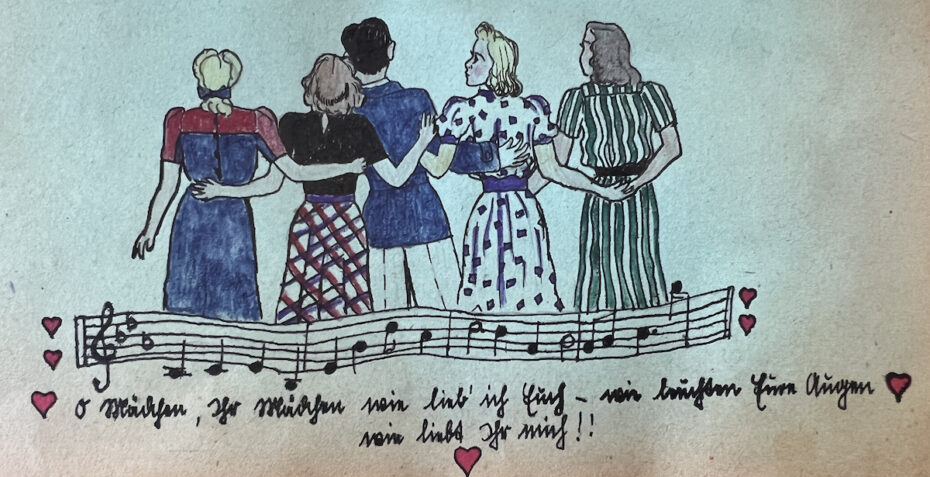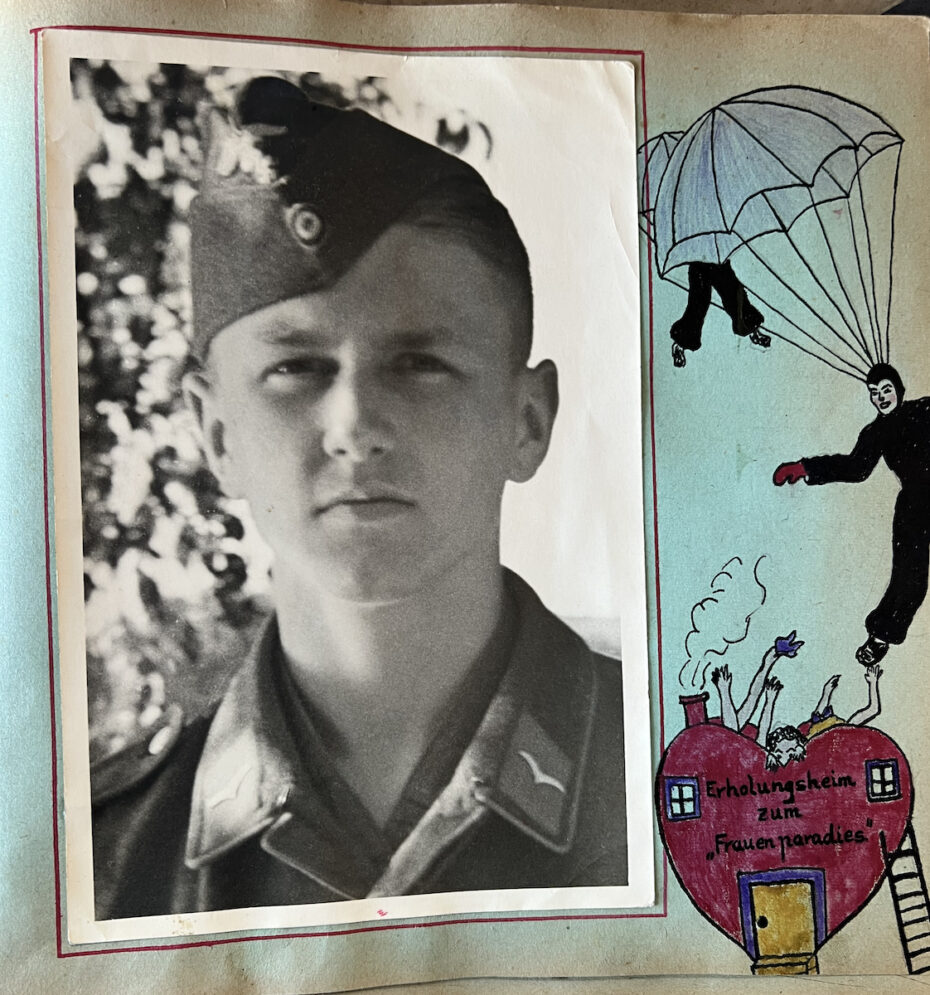
There’s something enchanting about coming across an old scrapbook; more than just a photo album, a lovingly put together book of ephemera can be a unique window into a life lived elsewhere. We previously found a marvellous one once at the Brooklyn Flea Market, made by an aspiring young actress in the 1930s making her way by train from New York City to Hollywood. The scrapbook was a delightful collection of photographs, vintage travel tickets, and cocktail swizzle sticks from bygone bars, that told the story of her aspirations of becoming an actress. But what if the scrapbook you find comes from a darker chapter in history? Today’s unearthed scrap book was made by a German soldier at the beginning of World War II. What makes it exceptional is that each page of photos is lovingly illustrated by hand. It shows the artist with his lover and a small group of friends in more innocent times; sunbathing on the beach, going to the cinema, spending the evenings dressed up and dancing before ultimately saying goodbye…
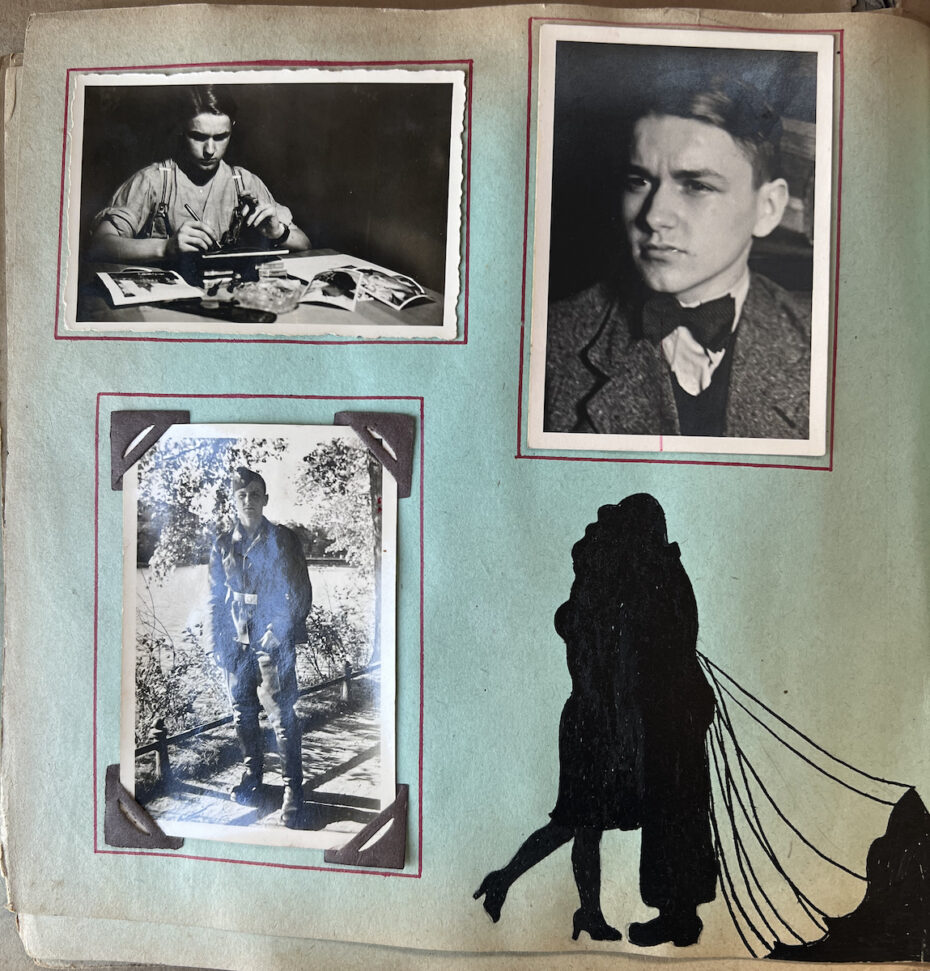
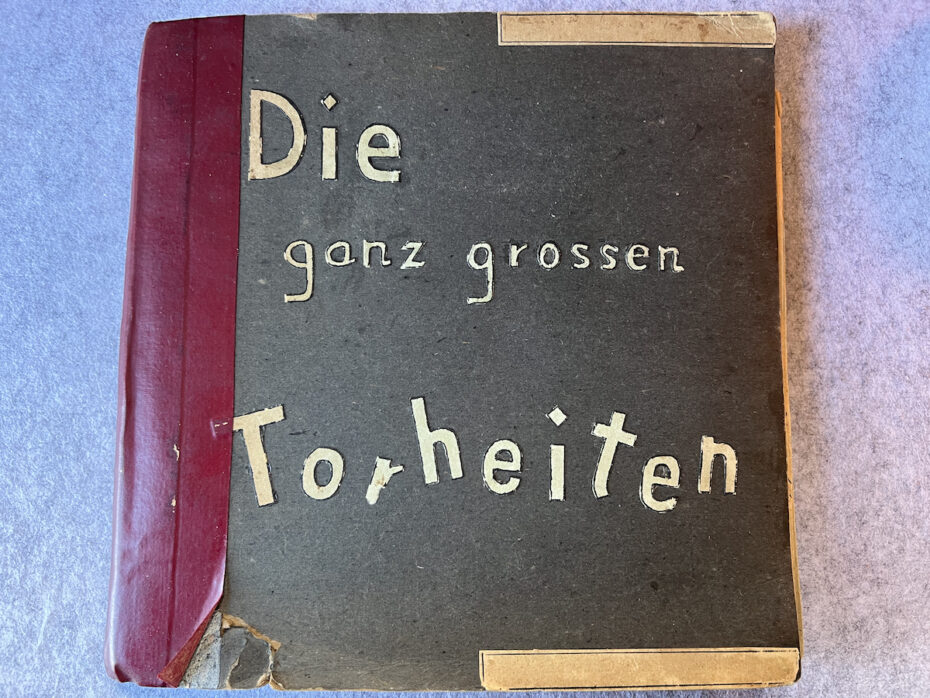
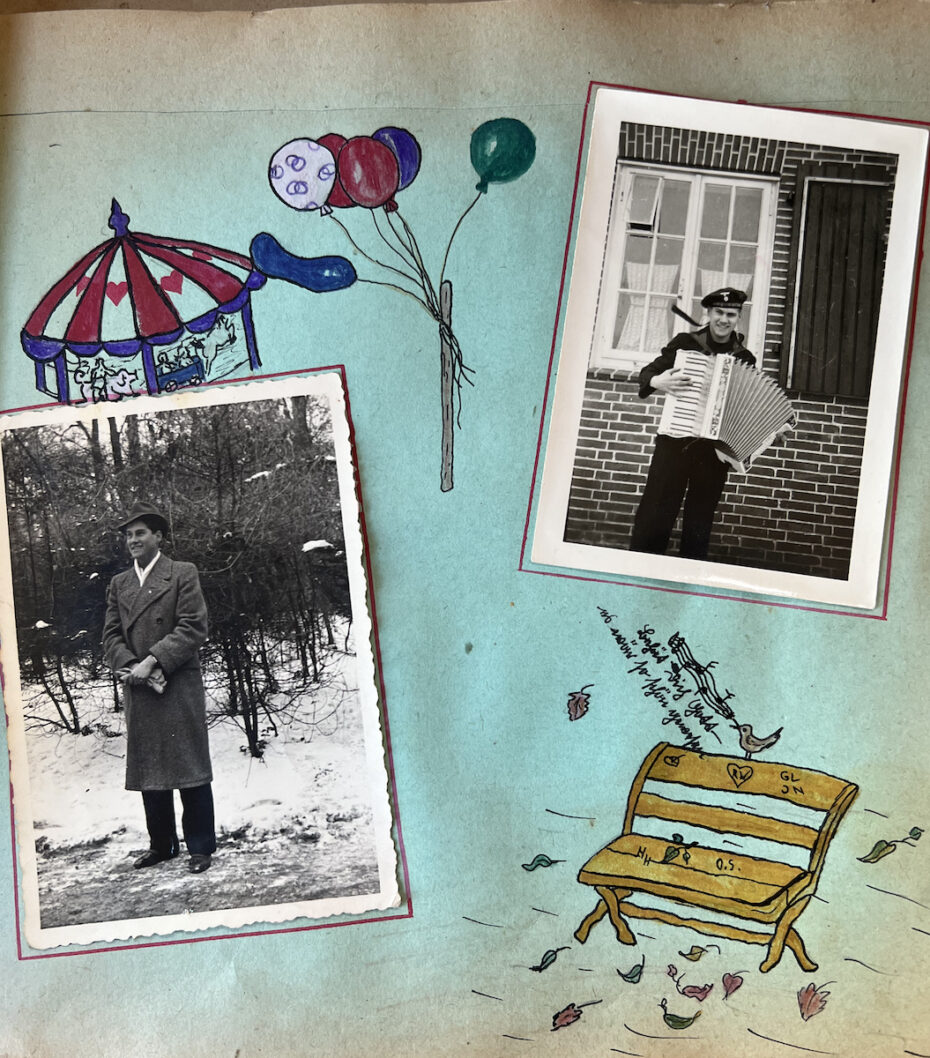
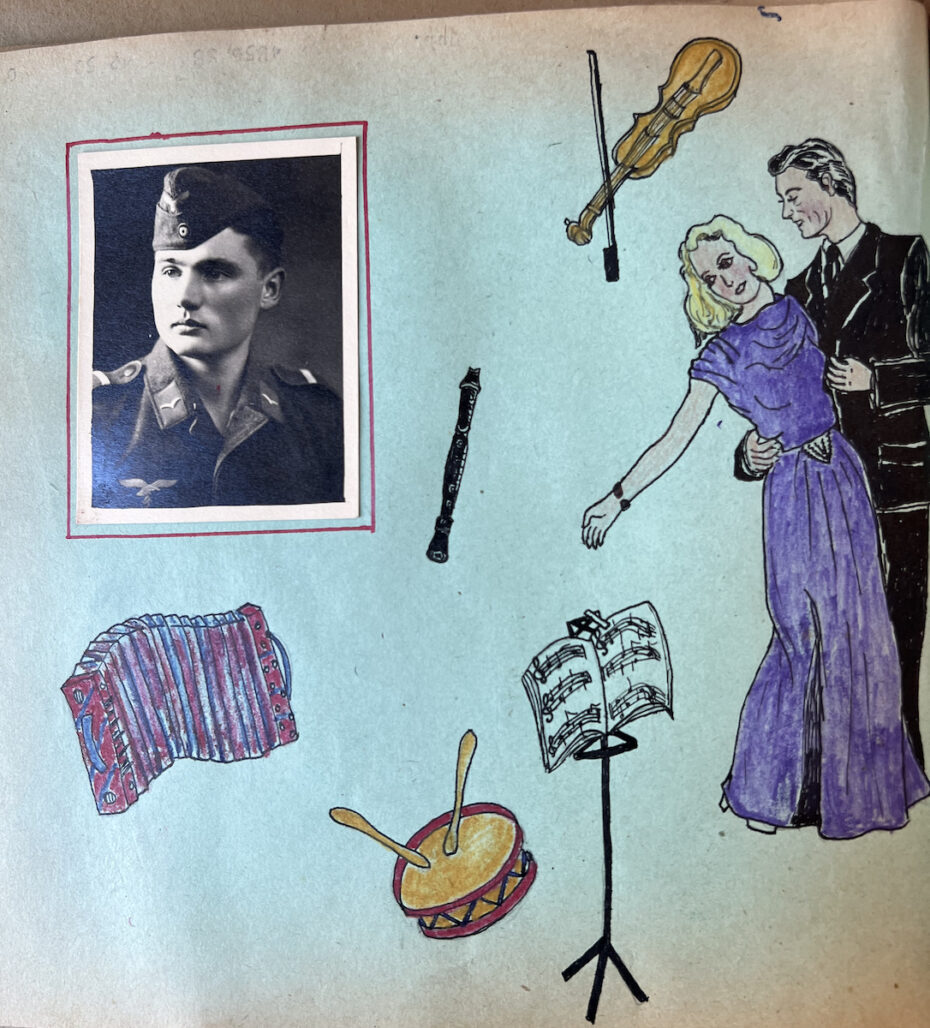
It is a startlingly nostalgic artefact, beautiful in its execution that shows the human side of people caught up in one of history’s most horrific eras. The cover is made up of letters cut out by hand and glued to the front. It spells out ‘Die Granz Grossen Torheiten’: the literal translation means ‘the really big follies’ but a truer meaning from the German gives away the ache of nostalgia felt by the artist for a lost time : “Such Great Foolishness.”
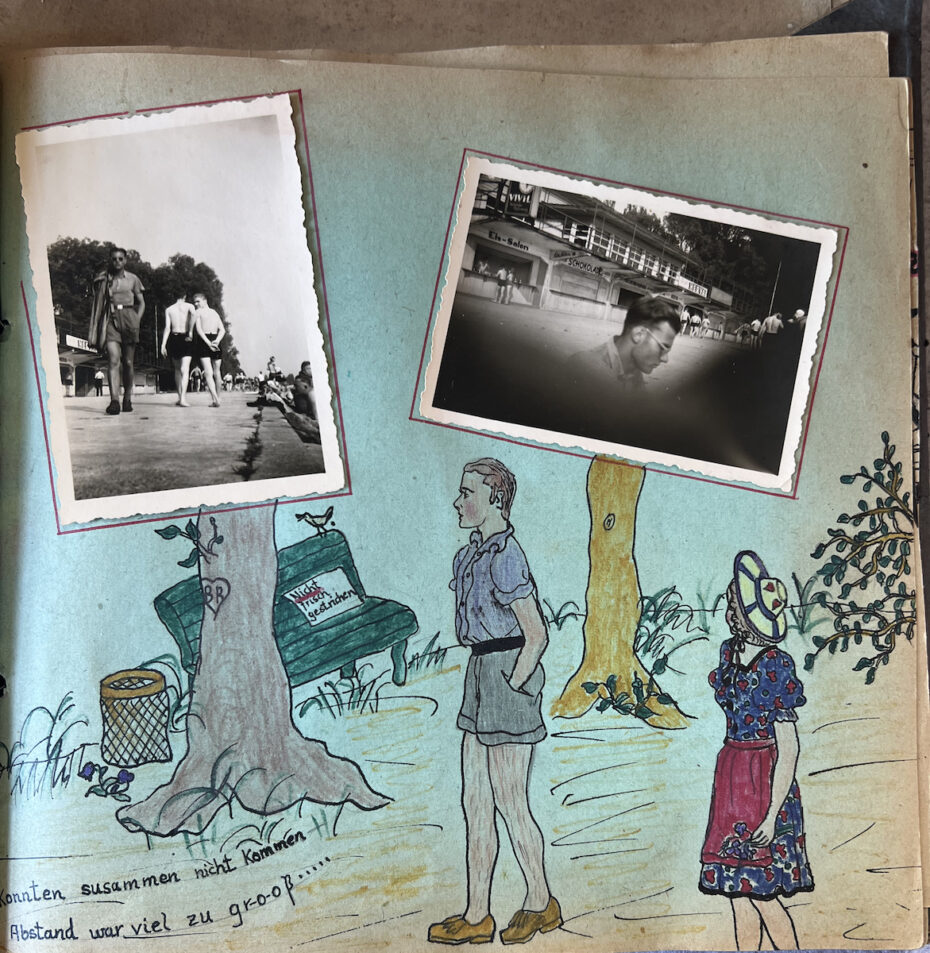
The scrapbook measures 9” square and came from one of our favourite military antique dealers, the family owned International Military Antiques. One of the co-owners, Alex Cranmer you’ll often see on the History channel show Pawn Stars, evaluating and often firing antique weapons.

The book consists of just twenty six pages, but each carries clues that help build up a picture of this young soldier and his friends. One was a sailor in the Kreigsmarine, the German navy. From the back one of photograph he can see his name was Richard, who signed the old Agfa Lupex print, “Ich denke immer auf dich zurück, in liebe dein, (I always think of you, in love yours”) writing from the city of Ede, in occupied Holland, 17th November, 1941.
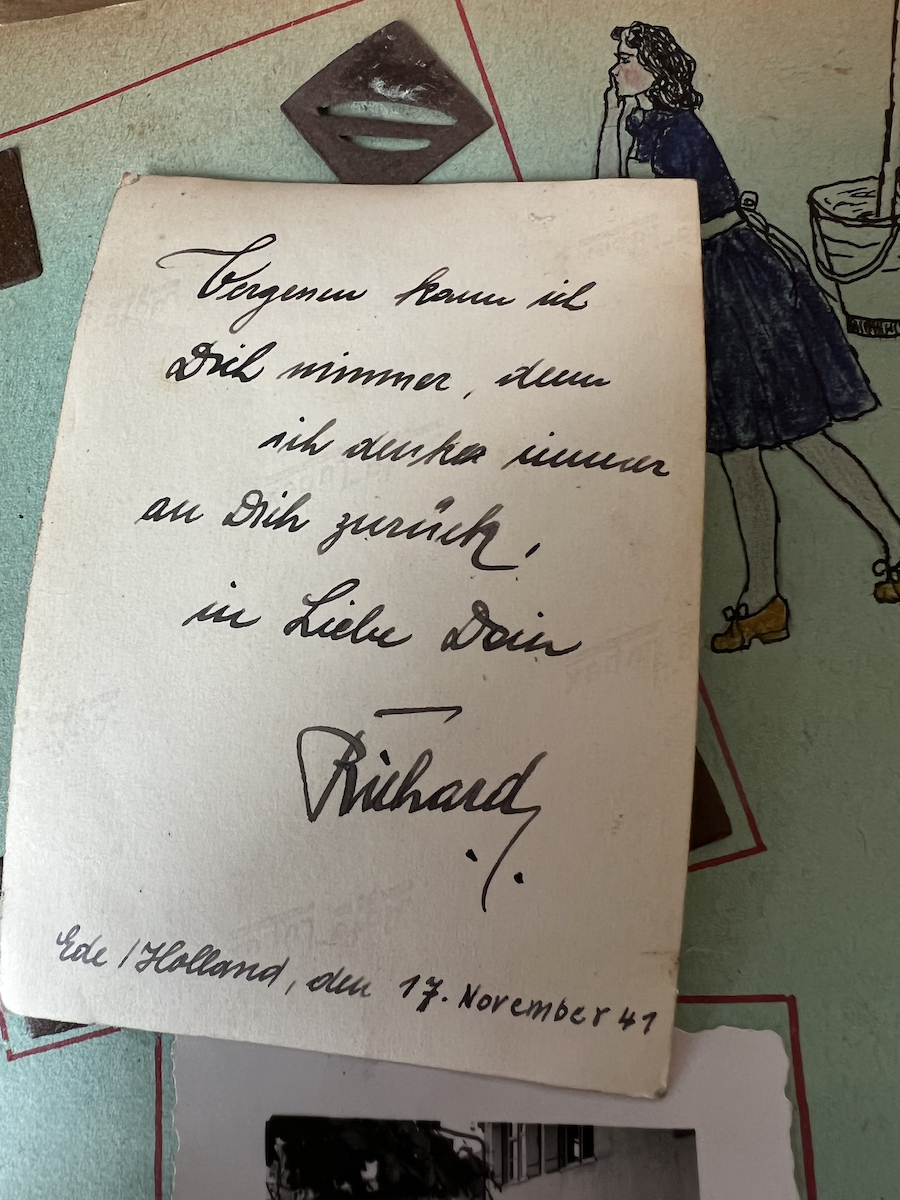
At the back of the scrapbook is a small newspaper clipping, a Familien-Anzeigen, or personal announcement, describing how one Theo Deisinger married Ilse Neninger in the city of Ludwigshafen am Rhein, and they lived at 26a Schützenstraße.
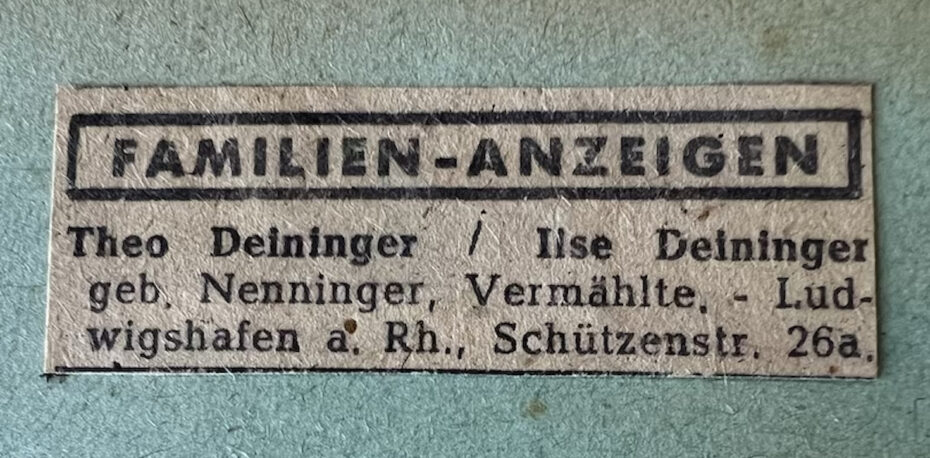
Perhaps this was the name of the man who made the scrapbook. We do know however, what he looked like; several photographs show him in the uniform of the Fallschirmjäger, the paratrooper branch of the Luftwaffe, but one in particular stands out: it shows the artist at work on the scrapbook itself, shirt sleeves rolled to the elbow, a sketching pen in one hand, a cigar in the other, his desk covered with the photos he’s about to glue into the album.
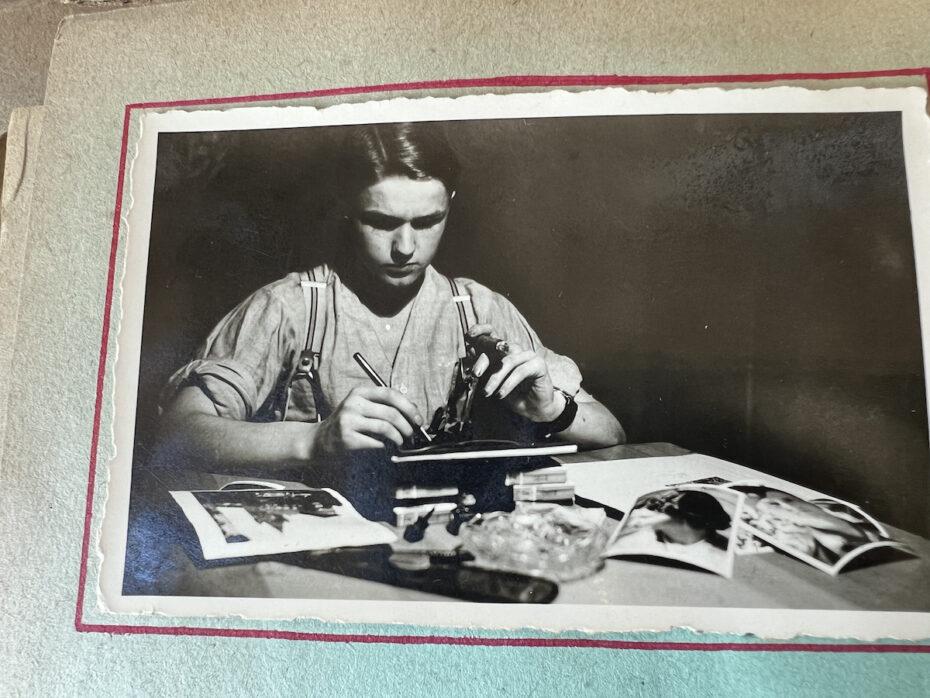
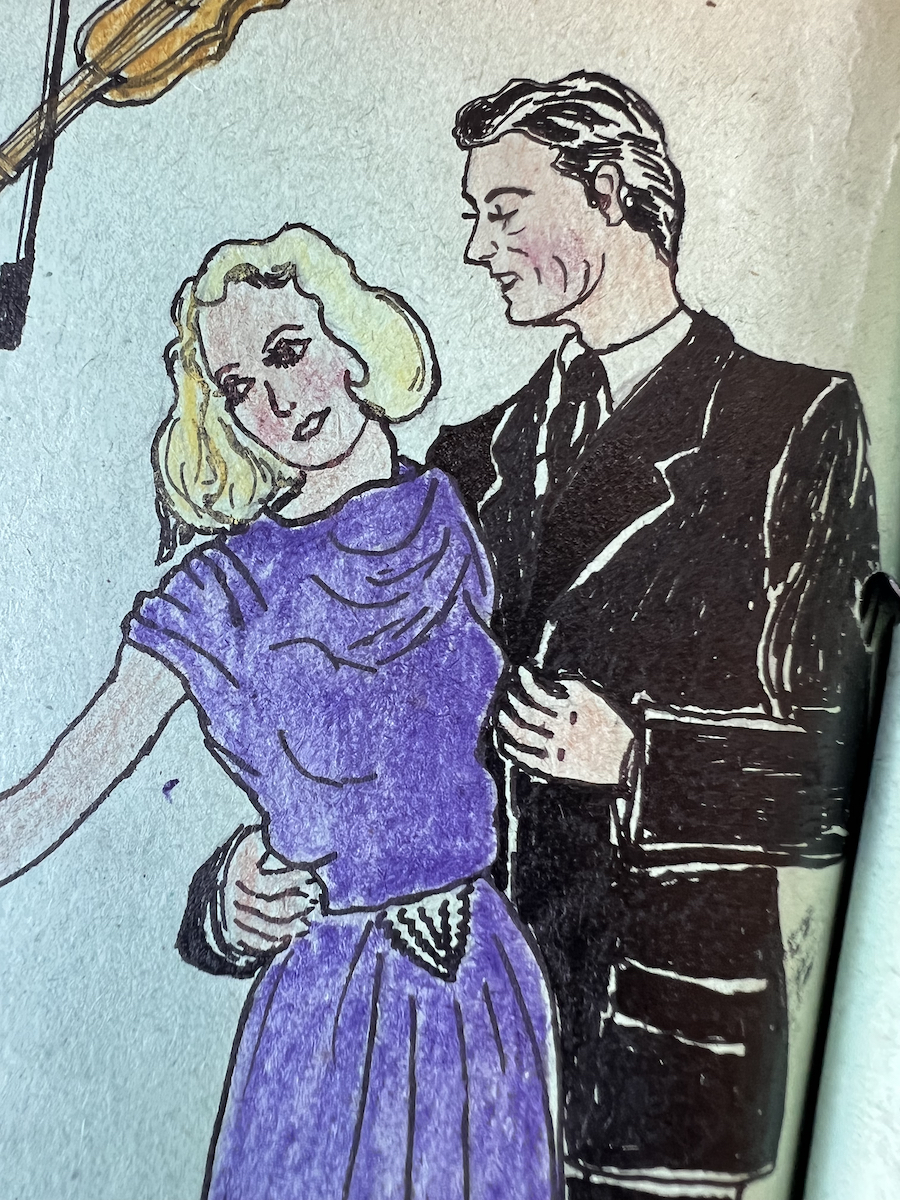
Ludwigshafen is a city in southwestern Germany on the left bank of the Rhine. Founded in 1606 and named for the Bavarian king Ludwig I, most of the early 17th century charm of the city had been consumed by the industrial revolution.
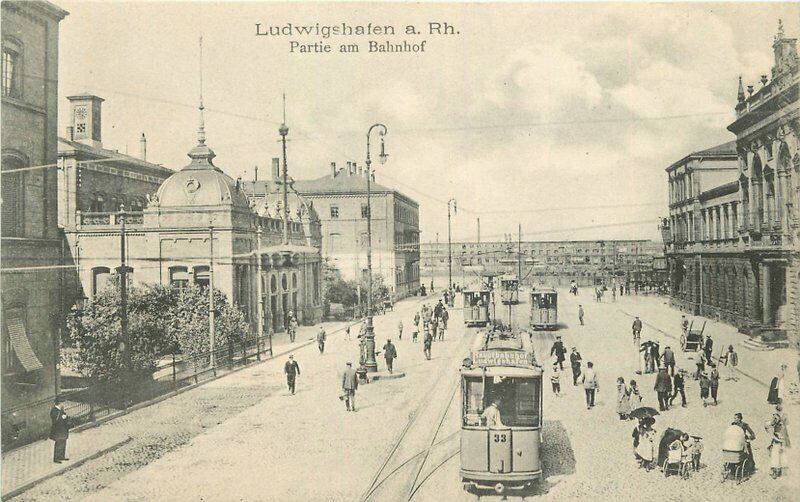
From the 1860s on, the city was home to BASF, the largest chemical producer in the world. The Baden Aniline and Soda Factory along with its subsidiary company IG Farben produced everything from synthetic dyes to sulphuric acid, ammonia and rubber. The vast chemical company dominated Ludwigshafen as it still does today.
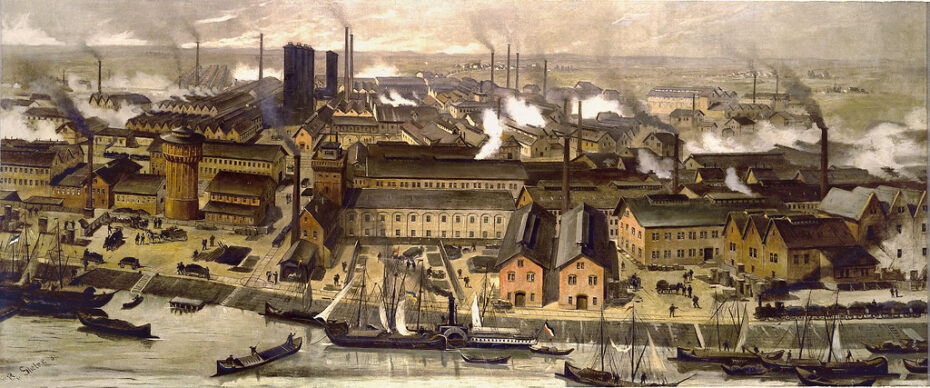
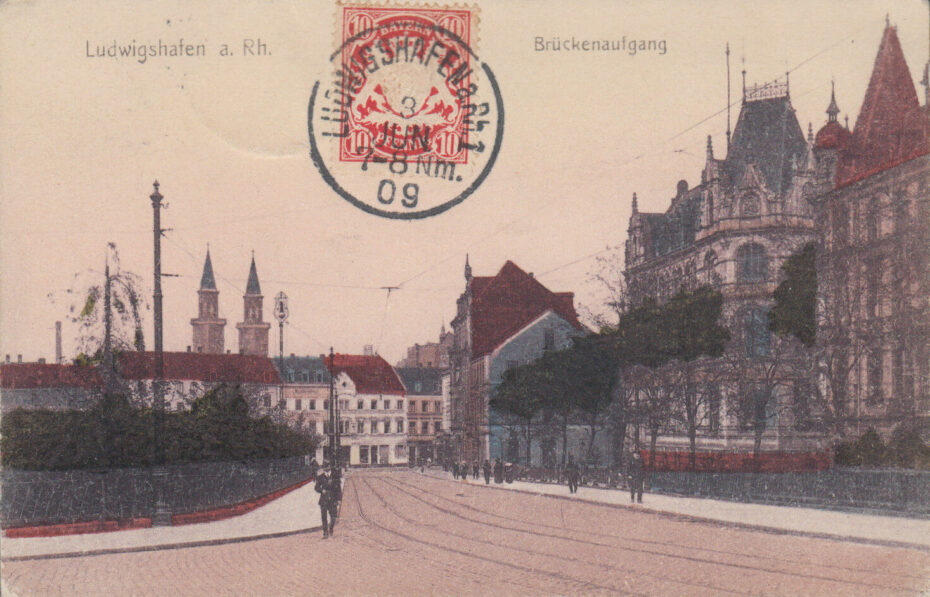
The apartment at 26a, Schützenstraße is still there, but Google Maps shows it to be a modern looking building, as is virtually everything else in Ludwigshafen: BASF and IG Farben were so vital to the German war effort and economy that the plants were destroyed by ferocious Allied bombing along with most of the rest of Ludwigshafen. Over thirteen thousand Allied planes dropped two and half million incendiary bombs on the city as well as tens of thousands of pounds of high explosives, closing the BASF plants and damaging almost every other building in Ludwigshafen.
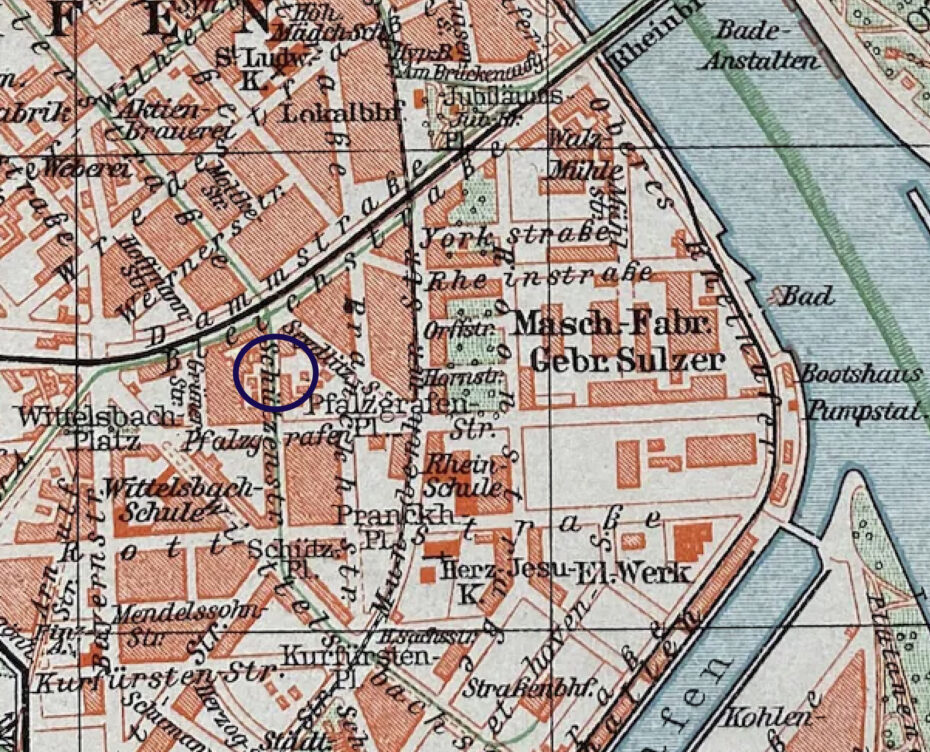

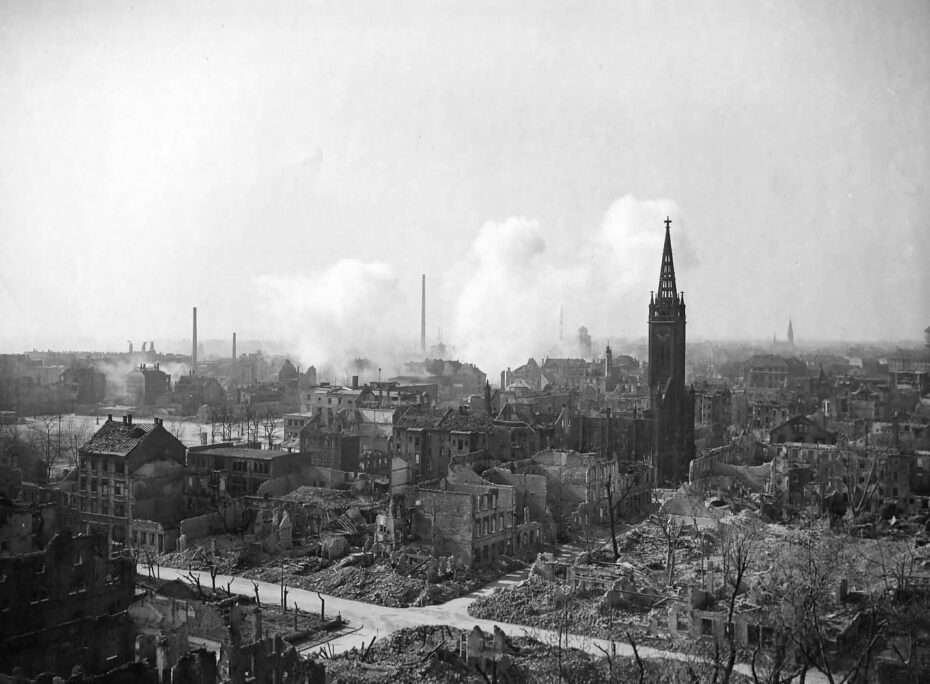
But the ‘Die Granz Grossen Torheiten’ scrap book shows a far happier time. Paratrooper Theo Deisinger (if that was his name) drew a city of filled with carousel rides, birds singing on park benches, lovers sunbathing on the public beach, before dressing for dinner and dancing.
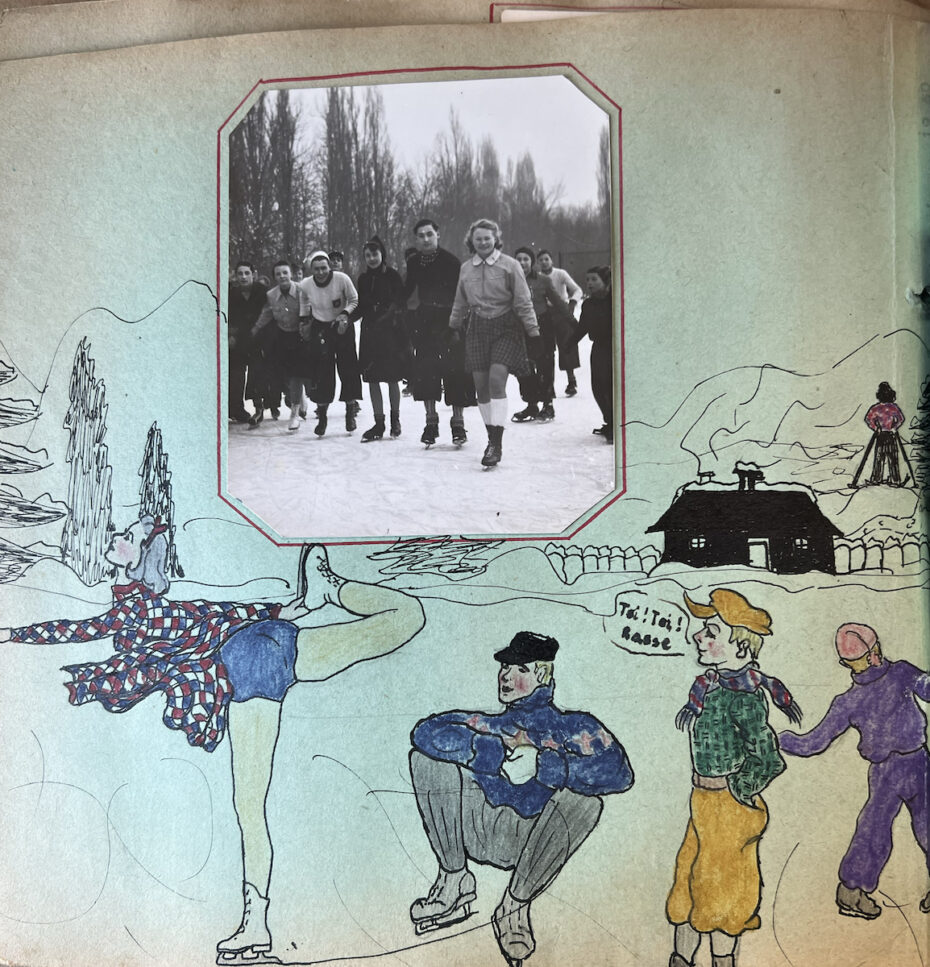
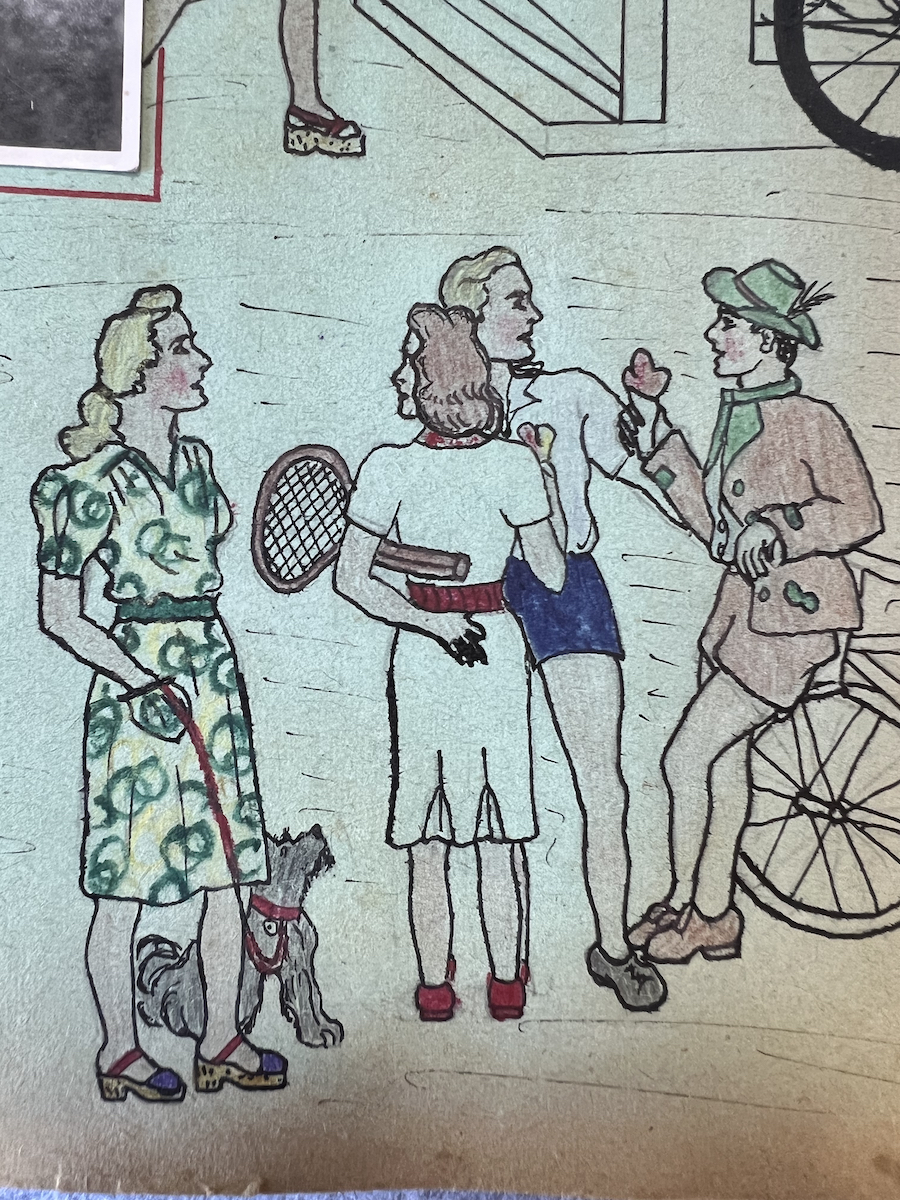
We even know what they were listening to: one drawing shows a couple lying on the beach under the shade of a sun umbrella listening to a portable gramophone, from which he drew some lyrics floating in the wind: “Warum bin ich denn bloß kein Torero?”.
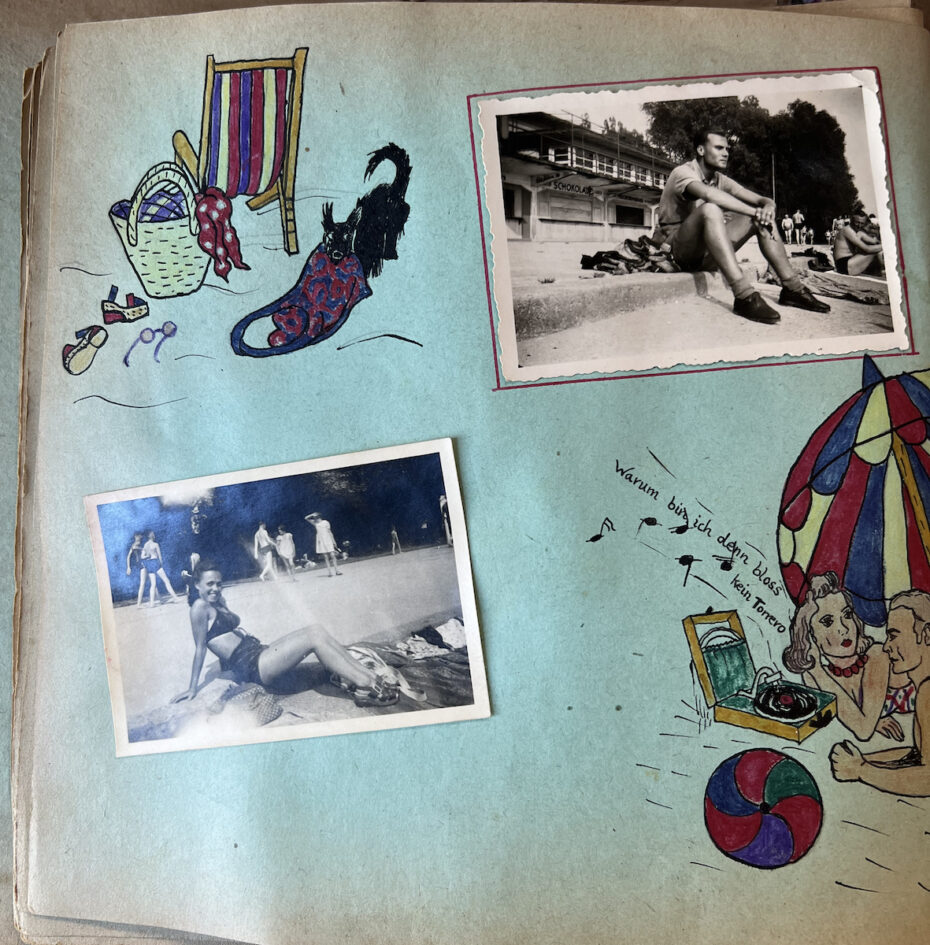
The song featured in the 1939 crime drama Der Vorhang Fält starring Anneliese Uhlig and Elfie Mayerhofer (below) and was recorded by a famed bandleader of the Weimar Republic days, Robert Gaden, who’s elegant renditions of Argentine tango mixed with dixie jazz earned him the nickname, ‘the Gentleman violinist’.
Our favourite drawing shows a trip the cinema to see a film called Ein Leben Lang, starring one of Austria’s foremost actresses of the era, Paula Wessely. The UFA-Palast im Pfalzbau was a beautiful Art Deco movie theatre with elegant curves facing the street, and a cocktail bar and concert hall on the second floor. The Art Deco gem was destroyed on September 5th, 1943 in one of the heaviest air raids to hit Ludwigshafen and the theatre was replaced with a convention centre built in the late 1960s in the Brutalist style.
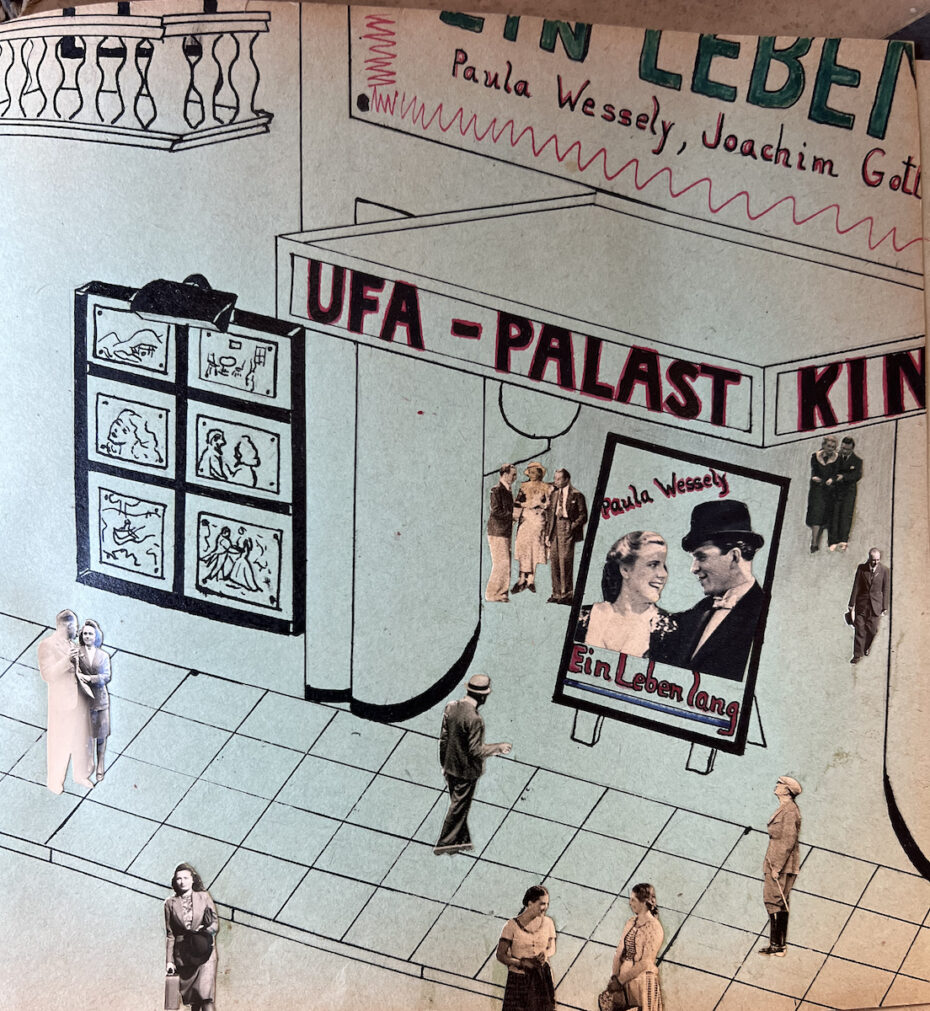
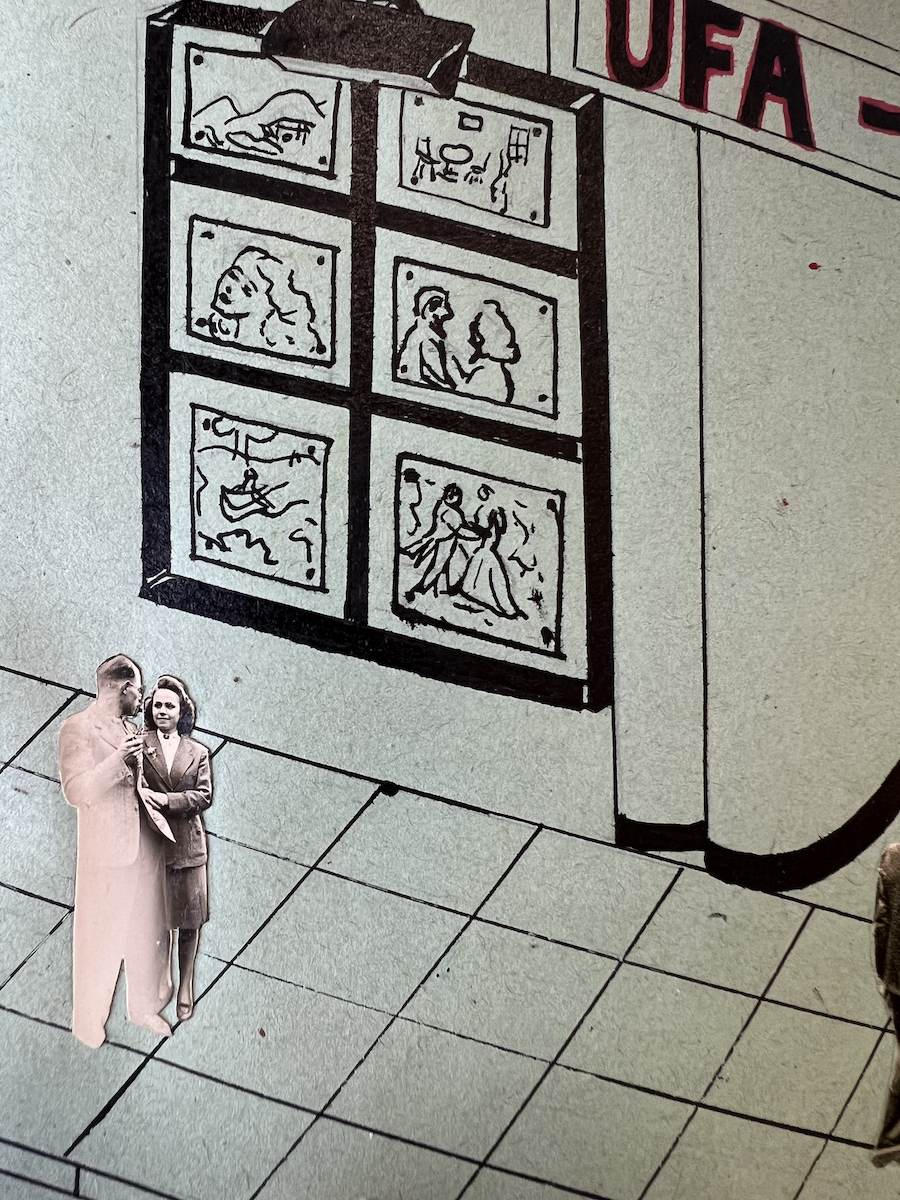
Whilst the scrapbook captures a time of innocence; cycling holidays, ice cream parlours and hiking in the mountains of Bavaria, it is worth noting that National Socialism had been in power for seven years when the book was created. Ludwigshafen was largely working class city, and like other heavily industrial cities leant more towards the KDP (Communist Party of Germany) and the Social Democrats, the Nazi party recording fewer members and votes, but still succeeded in enforcing their policies on Ludwigshafen. But what views our scrapbook maker and his friends held is absent from the book, save for the uniforms.

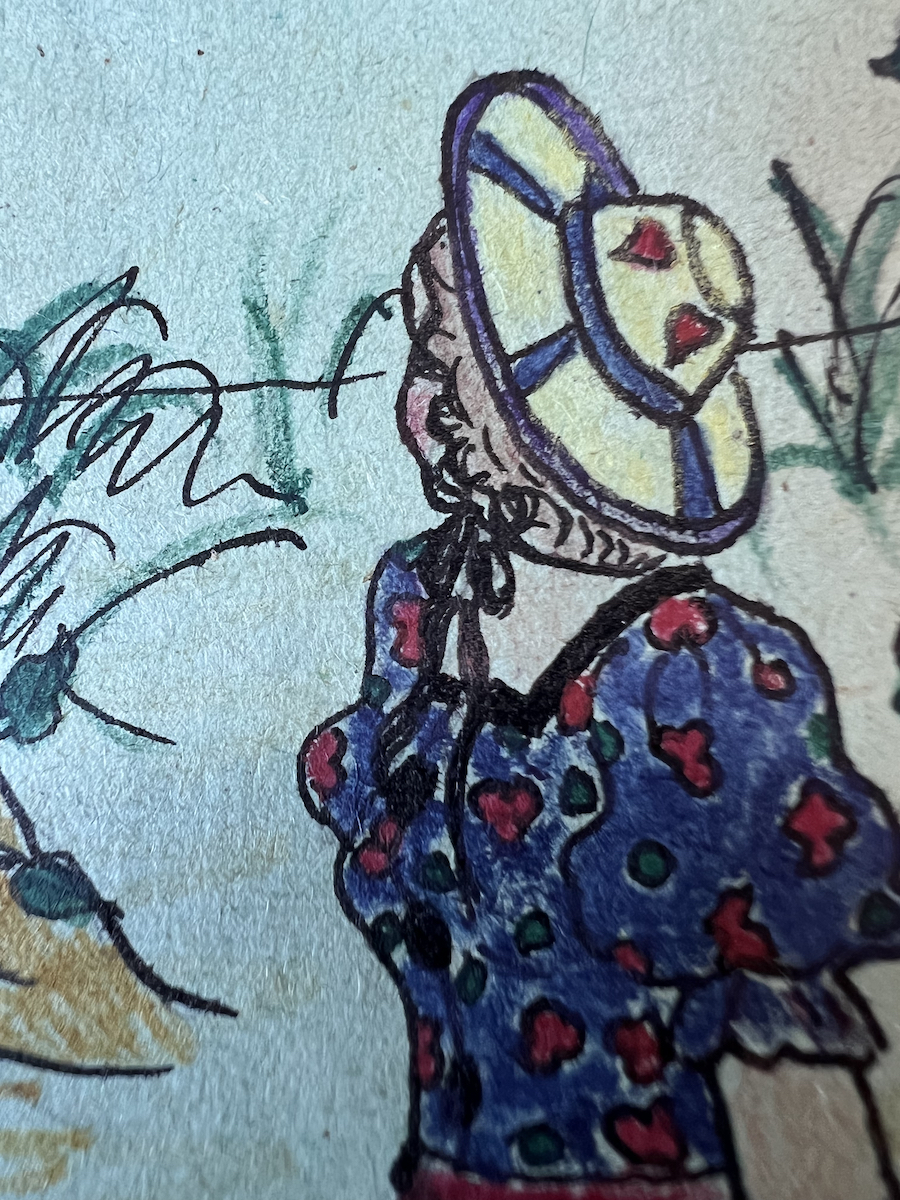
We had trouble finding records of what happened to Theo Deisininger and his wife Ilse, and their other friends; perhaps because virtually all of Ludwigshafen was destroyed during the war and no records survived. All we have left is one beautiful album, a fragment of photographs, illustrations and paper ephemera that shows the human side of these German soldiers.
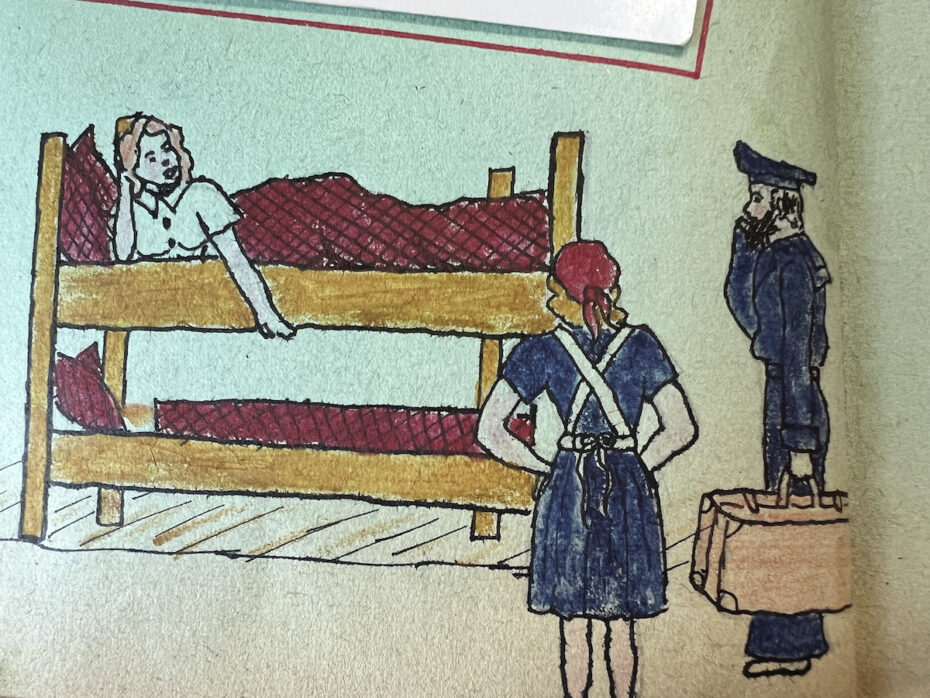
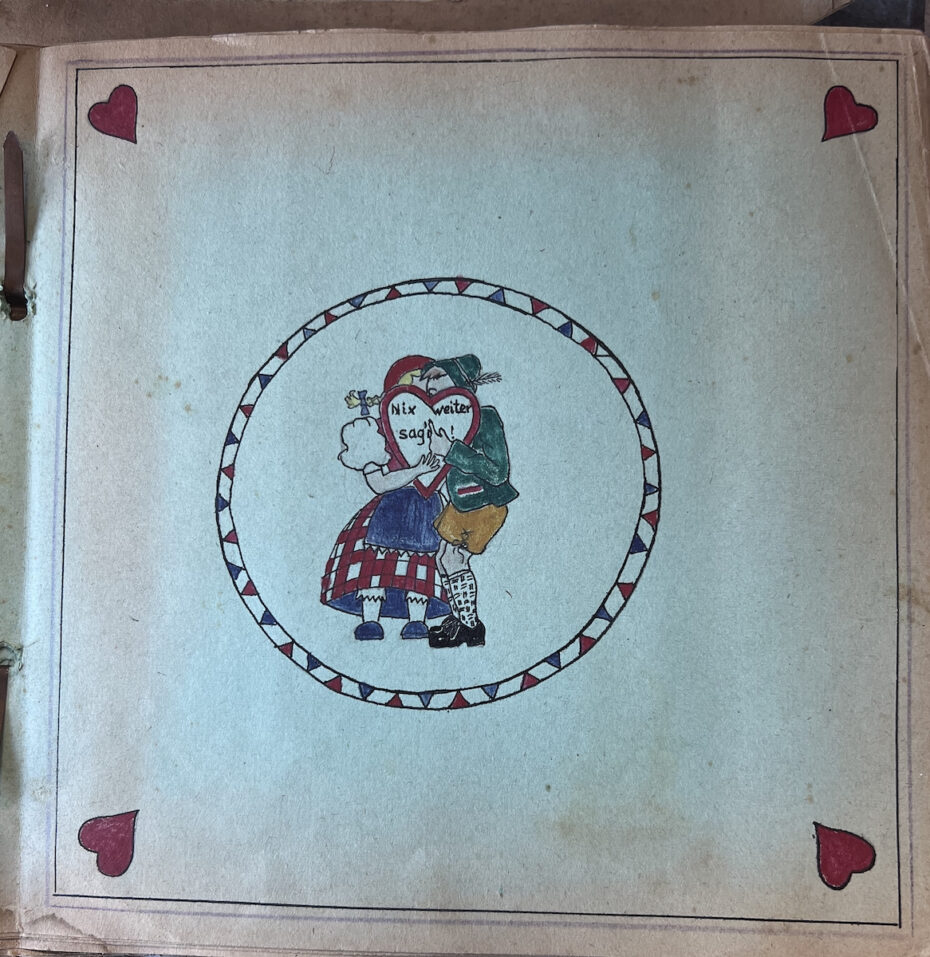
One of the first recorded definitions of the word ‘ephemera’ was written down in England in the 16th century, referring to ‘things that exist or are used or enjoyed for only a short time’; but somehow this small scrapbook managed to survive the horrors of the Second World War, capturing treasured memories of a small group of friends who it is quite likely did not survive, rendering the front cover title quite perfect; ‘Die Granz Grossen Torheiten’….“Such Great Foolishness.”
